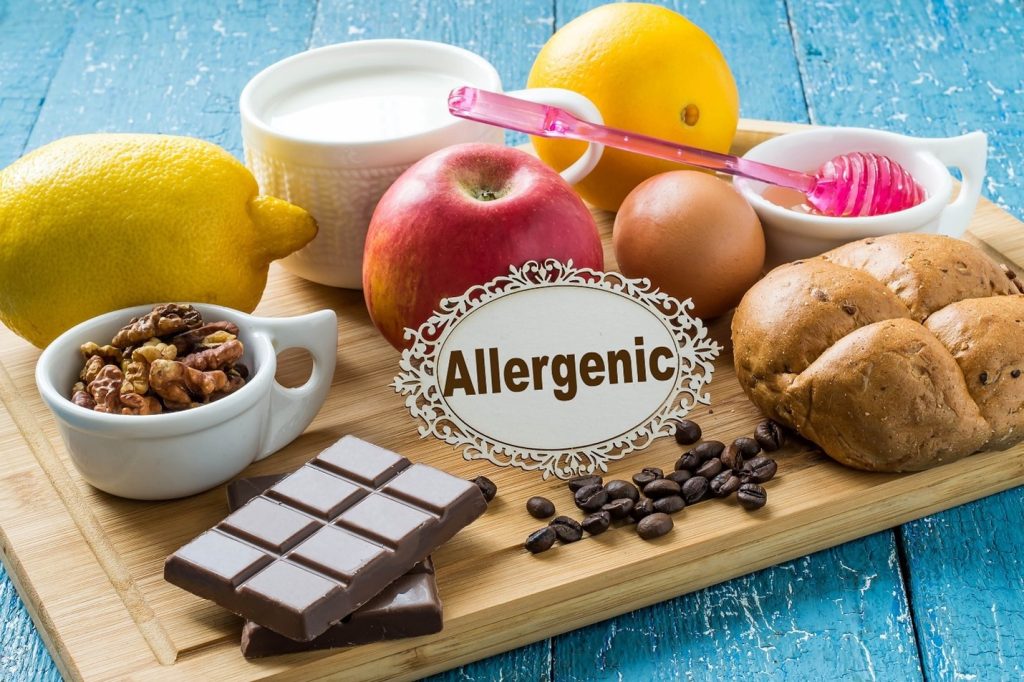About 50 million people in the United States annually suffer from the effects and symptoms of allergies. Of those 50 million, 10% or more are food allergies (6% of children and 4% of adults).

Ranging in category, type, and severity, food allergies are among the most common type of allergy, prevalent in both children and adults. Food allergies can also develop over time, meaning that individuals will later develop an allergy that never previously impacted their health.
Because of the prevalence and potentially life-threatening consequences of food allergies, it’s important to review and implement the most effective and research-backed preventative measures.
In what follows, we’ll be exploring some of the possible ways to prevent food-borne allergies, particularly in children, but also relevant to adults.
Prevention of Food Allergies
In order to prevent food allergies, it’s important to consider research on the subject. While some of the following proposed preventative strategies can transfer to both children and adults, the initial focus will be placed on the development of childhood allergies.
The following are 4 possible preventative mechanisms regarding the development of food allergies, particularly during childhood.
Breastfeeding and Food Allergies

The first thing to consider when seeking possible ways to protect an infant from the risk of food allergies is whether or not the child is breastfed or formula fed. While both have their pros and cons as it relates to the general health and development of the child, it has become a popular opinion that breastfeeding may be helpful in reducing the risk of developing food allergies.
Breastmilk has been shown to have protective immune qualities. For example, breastmilk immunoglobulins help protect babies from infection, illness, and long-term disease. Infants who are breastfed are less susceptible to respiratory tract infections, ear infections, urinary tract infections, as well as diabetes, asthma, and general stomach viruses. In addition, breastfeeding reduces the risk of gastrointestinal infections such as rotavirus and giardia lamblia.
Although the benefits of breastfeeding are clear, studies have not definitively demonstrated a causal relationship between breastfeeding and decreased incidence of food allergies in children. While the benefits of breastmilk are widespread and promising, more research on the benefits of breastfeeding as a preventative mechanism for food allergy development needs to be done to determine a conclusive relationship.
Avoid Common Food Allergens Altogether
If bottle-feeding is the method of choice during the initial months of an infant’s life, it’s important to remain consistent with this method, at least for the first four months, but ideally for six months or more. Studies have suggested that introducing solid food before six months of age increases the risk of developing food sensitivities and potential allergies later in life.
Some of the most common solid foods that can potentially cause immune responses are certain meats, cheeses, sauces, gravies, salad dressings, pickles, olives, packaged goods such as cookies and chips, and even raw meats such as liver and kidney. With this knowledge, parents can decide if they wish to avoid these foods or introduce them with caution.
Ensure Proper Nutrition
It’s also important to consider proper nutrition as a means of prevention of food allergies, not to mention the promotion of general health and longevity.
Ensuring that a child’s diet consists of plenty of fruits, vegetables, and other whole foods rich in vitamins and minerals like vitamins D and C will help the prevention of food allergy development. Vitamin D helps to decrease the immune response and can help decrease the likelihood of the development of an immune reaction to foods.
Research shows that infants who receive adequate amounts of vitamin D early in life have a reduced risk of developing food allergies later in life. Vitamin D also plays a role in maintaining healthy gut flora and preventing intestinal infections.
Limit Caffeine Consumption
Finally, consider limiting caffeine consumption, especially when pregnant or breastfeeding. Caffeine has been shown to affect the central nervous system, thus leading to the development of complications such as anxiety, insomnia, and irritability.

As it relates to allergies, caffeine contains naturally high levels of histamines, which is a strong mediator in the immune response. Higher levels could be correlated with higher response activity.
In one study, it was suggested that caffeine intake during pregnancy may have an influence on a child’s development of food allergies later in life.
If you suspect that your child is suffering from a food allergy, consult with your pediatrician immediately. They will likely recommend eliminating all suspected foods from your child’s diet for a period of time. Once the problem resolves, reintroduce foods slowly to determine what foods trigger reactions.
Final Thoughts
The best way to approach preventing food allergies in children is to be proactive. Some research on food allergies has revealed some possibilities, such as breastfeeding, good nutrition, and avoiding certain substances. Additional research will hopefully improve the knowledge in the area of food allergy prevention.
